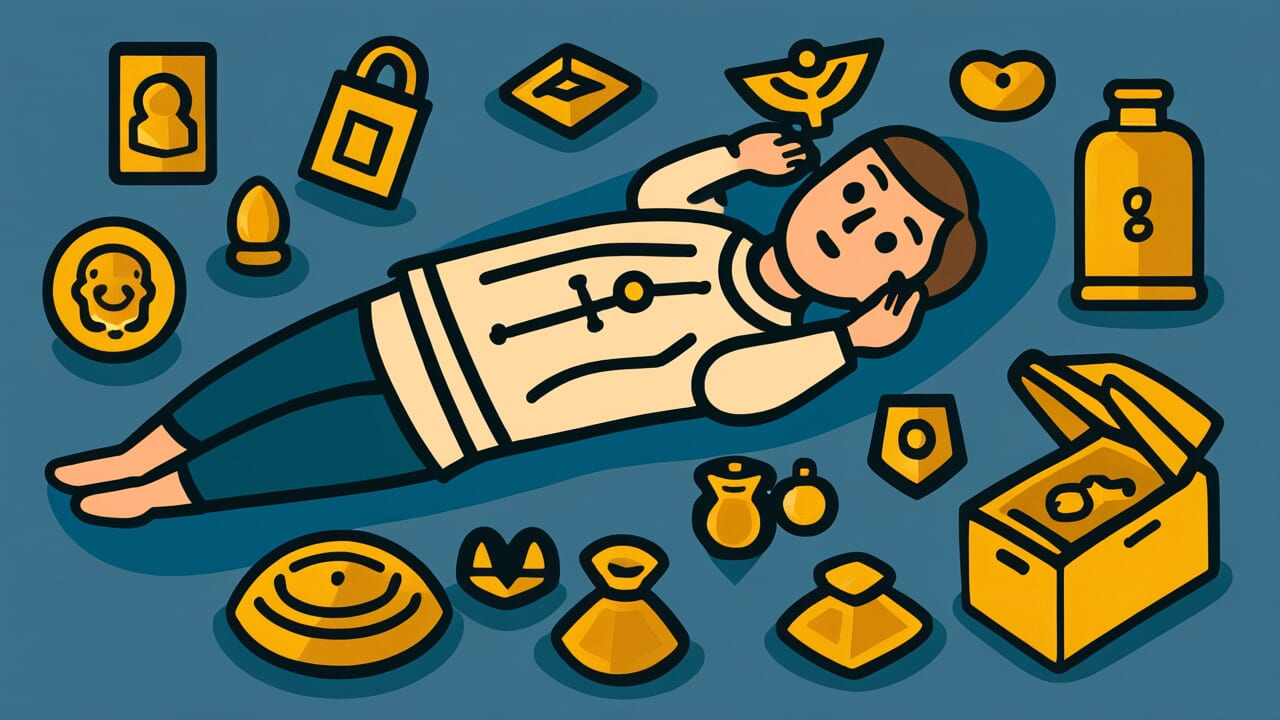How to Read “There is no treasure greater than life”
Inochi ni sugitaru takara nashi
Meaning of “There is no treasure greater than life”
This proverb expresses the most fundamental human value: nothing is more precious than life itself.
No matter how much wealth you have or how high your position, these things mean nothing if you lose your life.
Life is the source of all value and the foundation of all happiness.
People use this proverb when someone becomes too absorbed in something and starts sacrificing their health or safety.
For example, someone working so hard they’re damaging their body, or someone taking dangerous risks to chase profits.
Saying “There is no treasure greater than life” encourages them to reconsider their priorities.
In modern society, people often neglect their life and health while pursuing success and wealth.
This proverb helps us pause in such situations and remember what truly matters.
Origin and Etymology
The exact origin of this proverb is debated, but its structure offers interesting insights.
The expression “sugitaru” has long been used in Japanese to mean “surpassing” or “exceeding.”
“There is no treasure greater than life” literally means “no treasure exists that surpasses life.”
This clearly expresses the idea that life holds the highest value.
The proverb likely emerged from the influence of Buddhist and Confucian thought in Japan.
Buddhism especially emphasizes the dignity of life. Practice requires being alive, and enlightenment requires being alive.
From the Warring States period through the Edo period, samurai considered dying for honor a virtue.
Meanwhile, common people developed the practical view that “life comes first.”
The use of the word “treasure” is also noteworthy.
It encompasses gold, silver, jewels, status, honor, and all valuable things in a single word.
Then it positions “life” as the absolute value that surpasses all of these.
This vivid contrast gives the proverb its persuasive power.
Usage Examples
- After nearly collapsing from excessive overtime, I realized “There is no treasure greater than life” and changed how I work
- No matter how profitable the deal, “There is no treasure greater than life,” so I decided not to make risky investments
Universal Wisdom
Humans are strange creatures.
We know intellectually that life is most precious, yet we forget this obvious truth when we become absorbed in immediate desires or goals.
Why do we prioritize other things over life itself?
The answer may be that humans are beings who live “in this moment.”
Success, profit, and honor right before us feel concrete and tangible.
Meanwhile, the preciousness of life is abstract and hard to feel when we’re healthy.
We only realize its value after losing it.
From ancient times to today, humanity has always faced this contradiction.
Rulers risked their lives to protect thrones. Merchants embarked on dangerous voyages for wealth. Warriors chose death for honor.
Yet at the same time, many wise people continued teaching that “life is fundamental.”
This proverb has been passed down through generations because humans repeatedly make the same mistakes.
But also because we possess the wisdom to recognize these mistakes and correct our course.
When we’re about to forget the preciousness of life, this proverb pulls us back to what’s essential.
It’s a timeless phrase filled with deep understanding and compassion for humanity.
When AI Hears This
When survival is threatened, the human brain forcibly shuts down all other cognitive functions.
Neuroscience calls this “survival mode.” The amygdala becomes overactive while the prefrontal cortex’s higher thinking functions are suppressed.
In other words, people sensing mortal danger physically lose their “ability to judge the value of treasure.”
Interestingly, the order shown in Maslow’s hierarchy of needs actually reflects the brain’s energy allocation priorities.
Neural circuits for satisfying physiological needs are in the brain’s oldest parts and are constantly monitored.
Meanwhile, the reward system that recognizes “treasure” and the prefrontal cortex that makes value judgments only receive sufficient energy after survival is secured.
Experiments with starving subjects show measurably decreased interest in anything besides food.
Cognitive science has also revealed the blind spot of “survivorship bias.”
We cannot hear the voices of “people who sacrificed life for treasure.”
Only survivors can share their experiences, so humanity had no choice but to reach the conclusion that “nothing is more precious than life” over thousands of years.
This isn’t logical reasoning but inevitable wisdom born from data bias.
Lessons for Today
Modern society constantly demands “more” from us.
Work more, earn more, succeed more.
Amid this, the proverb quietly asks: What are you working so hard for?
This proverb teaches us how to prioritize in life.
Career matters. Money is necessary. Achieving dreams is wonderful.
But the foundation of all these things is your life and health.
When the foundation crumbles, everything built upon it loses meaning.
Concretely, this means having the courage to reconsider unreasonable work habits.
Getting health checkups. Taking sufficient sleep. Facing stress.
These may seem like small things, but they are acts of protecting your life.
And protecting your life is also the most reliable way to realize your dreams and goals.
This proverb isn’t teaching you to give up.
Rather, it teaches that by living long and healthy, you can accomplish more.
Life comes first. Please don’t forget this obvious truth.



Comments